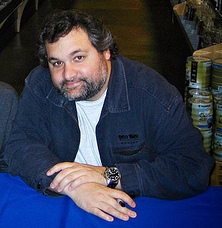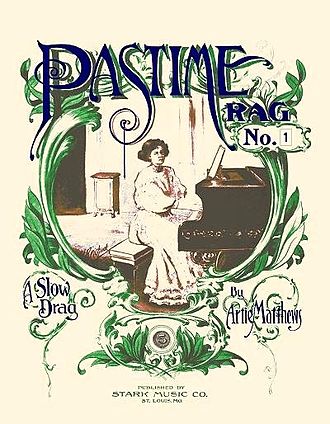Discover Your Roots
SIGN UPDiscover Your Roots
SIGN UPArtie is a male given name of American origin that means "Bear." It is often considered a diminutive of the name Arthur. The name has a strong and masculine connotation, reflecting the symbolism of the bear as a powerful and resilient animal. Notable individuals with the name Artie include Artie Shaw, the renowned American jazz clarinetist, and Artie Lange, a well-known actor and comedian on The Howard Stern Show and Mad TV. Fictional characters such as Artie Abrams from the television series Glee and Artie Nielsen from Warehouse 13 also contribute to the name's cultural significance. The name Artie is associated with strength and tenacity, making it a popular choice for parents seeking a name with a powerful and enduring meaning for their son.

Arthur Steven Lange Jr., born on October 11, 1967, in Livingston, New Jersey, is a well-known American stand-up comedian, actor, and radio personality. He gained fame through his appearances on the sketch comedy series Mad TV and The Howard Stern Show. Raised in New Jersey, Lange initially worked as a longshoreman and taxi driver to support his family after his father's death. He started his stand-up comedy career in 1987 and transitioned into full-time comedy five years later. Lange's career includes starring in Mad TV, co-starring in the comedy film Dirty Work, and joining The Howard Stern Show in 2001. He has also released comedy albums, written books, and hosted various radio shows and podcasts. Despite personal struggles, including drug addiction and legal issues, Lange has made a comeback, resuming his stand-up performances and launching his podcast, Artie Lange's Halfway House. His journey has been a rollercoaster ride, marked by highs and lows, but his resilience and talent continue to captivate audiences.

Artie Tyrone Burns Jr. is an American professional football cornerback for the Miami Dolphins of the NFL. Born on May 1, 1995, in Miami, Burns attended Miami Northwestern High School, excelling in football and track and field. He committed to the University of Miami, where he continued to showcase his athletic prowess. In 2016, Burns was selected by the Pittsburgh Steelers in the first round of the NFL draft, signing a lucrative rookie contract. Despite early setbacks due to injury, Burns quickly established himself as a formidable presence on the field, earning a starting position and making impactful plays throughout his rookie season. His contributions included interceptions and numerous tackles, solidifying his reputation as a promising talent in the league. With his exceptional speed and defensive skills, Burns continues to be a key player, making significant contributions to the Dolphins' lineup. His journey from high school standout to NFL cornerback demonstrates his dedication, talent, and determination to succeed in the competitive world of professional football.

Artie Kaplan (born 1935) is a notable American recording artist, songwriter, and session musician, recognized for his versatile skills on saxophone, clarinet, flute, and piccolo. With a career spanning several decades, Kaplan has made his mark as a music contractor, casting musicians for various recording sessions. His invaluable advice to always "show up on time and bring a pencil" has left a lasting impression on fellow musicians, including Joe Delia. Kaplan’s saxophone solos can be heard on over 150 top 10 songs, including hits like "1-2-3" by Len Barry, "The Locomotion" by Little Eva, and "Mandy" by Barry Manilow. In 1972, he released the album "Confessions of a Male Chauvinist Pig," described by Billboard's Sam Sutherland as an "eyebrow raising project." Kaplan's songwriting ventures have produced notable tracks like "Harmony" and "Bensonhurst Blues," the latter becoming a hit for Dutch singer Oscar Benton. His extensive session work includes collaborations with renowned artists such as Connie Francis, Neil Sedaka, and Barry Manilow. With a rich discography and an influential presence in the music industry, Artie Kaplan continues to be a revered figure in the world of music.

Artie Matthews (November 15, 1888 – October 25, 1958) was an influential American songwriter, pianist, and ragtime composer. Born in Braidwood, Illinois, he developed a passion for ragtime after being inspired by pianist Banty Morgan in 1905. Matthews later moved to St. Louis, Missouri, and Chicago, Illinois, where he worked as a pianist, arranger, and composer for local theater productions. In 1913, he caught the attention of music publisher John Stark, who offered to publish his original rags. Matthews' influence extended to Cincinnati, Ohio, where he co-founded the Cosmopolitan School of Music, teaching there until his passing. Notable for his "Pastime Rags" and "Baby Seals Blues," Matthews' compositions continue to be celebrated in Dixieland and New Orleans jazz bands. Often compared to renowned ragtime composers, including Scott Joplin, Joseph Lamb, and James Scott, Matthews has left an indelible mark on the ragtime genre. His legacy lives on through his timeless compositions and the impact he had on the development of ragtime music.

Arthur "Artie" Atherton, born Charles Arthur Moll, was an American entertainer and circus sideshow performer, known as "the living human skeleton" or "skeleton dude." Born in Saginaw, Michigan in 1890, he overcame physical challenges from birth, and at 19, joined the Barnum & Bailey Circus, gaining fame as a solo act. Atherton's living skeleton act became iconic, leading him to work with various circuses and sideshows, including Dreamland Circus sideshow on Coney Island and the Ringling Bros. and Barnum & Bailey Circus.In 1911, Atherton married Mary Blanche "Jelly May" Burkley, a fellow circus performer. They were promoted as "The Happy Couple." Despite their unique personas, they had two healthy children, challenging societal perceptions of genetic disadvantages.Tragically, Atherton's life was cut short at 31 when he was hit by a motor vehicle in 1920. His life and career, though steeped in the controversial entertainment industry of the time, left a lasting impact on the history of sideshow performance.Arthur "Artie" Atherton's legacy endures as a testament to the complex intersections of entertainment, societal attitudes, and personal resilience in the early 20th century.
All images displayed on this page are sourced from Wikipedia or Wikimedia Commons.We use these images under their respective Creative Commons or public domain licenses. Wherever applicable, author attributions and license information are provided. If you believe an image is used incorrectly or outside its license terms, please contact us so that we can review and correct the issue.